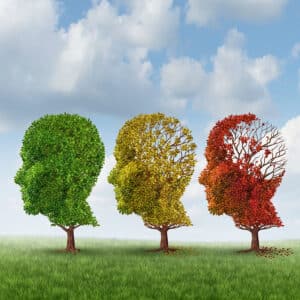In-Home Care Tips to Understand Aging Brain Changes

Aging Brain Changes: In-Home Care Kannapolis NC
Like the rest of the body, the brain will inevitably undergo changes as a natural result of aging. These changes can affect thinking, memory, and other cognitive skills. Seniors need to preserve their mental health and well-being to get an understanding of how these changes occur and how they affect thinking. With the help of loved ones and in-home care, seniors can navigate the changes with less frustration.
Understanding Changes in the Brain
The number of neurons, also known as nerve cells, decreases as a natural consequence of aging. This loss of neurons can result in a decrease in the speed at which information is processed. This decrease can make it hard for seniors to respond rapidly to new information or environmental changes.
The levels of some neurotransmitters, which are substances that transmit information between neurons, also decrease as a normal part of the aging process in the brain. With this shift, problems with attention, concentration, and memory may occur in some seniors.
In addition to these changes, the prefrontal cortex, which is responsible for decision-making and problem-solving, goes through changes in its structure as well as its function as the brain ages. These changes can result in issues with planning, decision-making, and problem-solving and impair seniors’ capacity to function independently in their day-to-day life.
However, it is essential to remember that not all aging-related alterations are detrimental to brain function. Some regions of the brain, such as the hippocampus, can actually increase in size as humans age. This may assist in compensating for the loss of neurons that occurs in other regions of the brain.
What Can Seniors Do to Address Changes?
It is crucial to participate in activities promoting brain health to maintain cognitive health and well-being as we age. These activities include engaging in mentally challenging hobbies and keeping up with a regular exercise routine. These activities have the potential to help encourage the formation of new neurons and connections in the brain, which can help to balance some of the negative consequences that are associated with aging.
Adding in-home care to seniors’ routines helps encourage these activities by motivating seniors to be consistent daily. They can play games with seniors, walk with them around the block, or promote their participation in group exercises.
In-home care providers can also help seniors create a healthy meal plan focusing on brain health. Food such as fatty fish, blueberries, turmeric, and broccoli are all great additions to a healthy meal plan. Not only can support from in-home care provide a healthy meal plan, but elder care aids can also assist seniors in cooking these new foods.
Changes that occur in the brain as a result of aging can have a substantial influence on thinking as well as cognitive function. Seniors can take steps to maintain their mental health and overall well-being as they age if they are aware of how these changes occur and if they participate in activities that enhance brain health. Working with in-home care and loved ones is a great way to ensure seniors do all they can to maintain their health and wellness.
If you or an aging loved one are considering In-Home Care in Kannapolis, NC, contact the caring professionals at TenderHearted Home Care today. Call us at (704) 612-4132
- Seniors and Unreported Falls - May 22, 2025
- Six Areas Your Loved One May Need Help With During the Early Stages of Alzheimer’s Disease - May 8, 2025
- What Harms Senior Mental Health? - April 23, 2025


